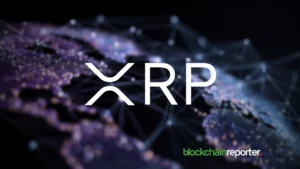
Uniswap, a decentralized exchange (DEX), has terminated two-hundred and fifty-three crypto addresses in its working of up to 4 months with TRM Labs (a blockchain analytics company). Initially, this was the initial time that the data related to wallet blacklisting was disclosed by Uniswap. The respective addresses were chiefly terminated due to their links with Tornado Cash (a privacy protocol providing the services of transaction mixing) – on which sanctions have been imposed recently. The others were containing stolen funds.
Crypto Addresses Linked with Sanctions or Pilfered Funds Halted by Uniswap
Jordan Frankfurt, the software engineer of the platform published the respective data on GitHub, as mentioned by Banteg (the main developer on Yearn Finance). The data was saved by Banteg on GitHub as well as in a thread of tweets. There are nearly 3 prominent factors that are responsible for the establishment of Uniswap. One among them is code operating on the venue’s blockchain that can be interacted with by anyone.
The other is a front-end web portal specified for the provision of a method for the customers to interact with the aforementioned code. The third thing providing the basis for Uniswap is a firm based in the United States that constructs the protocol along with operating the front-end website. The blockage of the crypto assets takes place on the platform’s front-end level. In April, a collaboration was carried out between Uniswap and TRM Labs.

When an interaction is done by someone with the website of Uniswap, their respective address is redirected to TRM Labs. There, a risk level is assigned to that particular address. After that, it remains in the hands of Uniswap to determine which among the risk levels is acceptable for it. As per the comments of Frankfurt on GitHub, those addresses were firstly blocked by Uniswap which were not having a direct connection to the sanctioned addresses.
TRM Labs Checks Addresses in 7 Illegal Categories
However, the venue pulled back from that strategy shortly. At the moment, it is just terminating the addresses on which the sanctioned were enforced or they have straightly obtained stolen or hacked funds. There are 7 categories classified by TRM Labs related to illegitimate operations. The platform examines the addresses in line with all these categories, as per a chart issued on GitHub.
The chief 4 among them which are commonly found deal with the funds related to a transaction mixer, the stolen funds, the funds that are received from some anonymous scam, and the sanctioned addresses. The rest of the categories take into account the material including sexual abuse of children, the funds that have been utilized to finance terrorist organizations, as well as the funds from some anonymous groups of hackers.
It was noted by Banteg that nearly 30 of those addresses were discovered to have a relationship with ENS names (also known as the names which are readable by humans and are utilized to make it convenient to send payments in crypto to the targeted wallets). According to the assessment of Banteg, the majority of them appeared to be lawful consumers.








